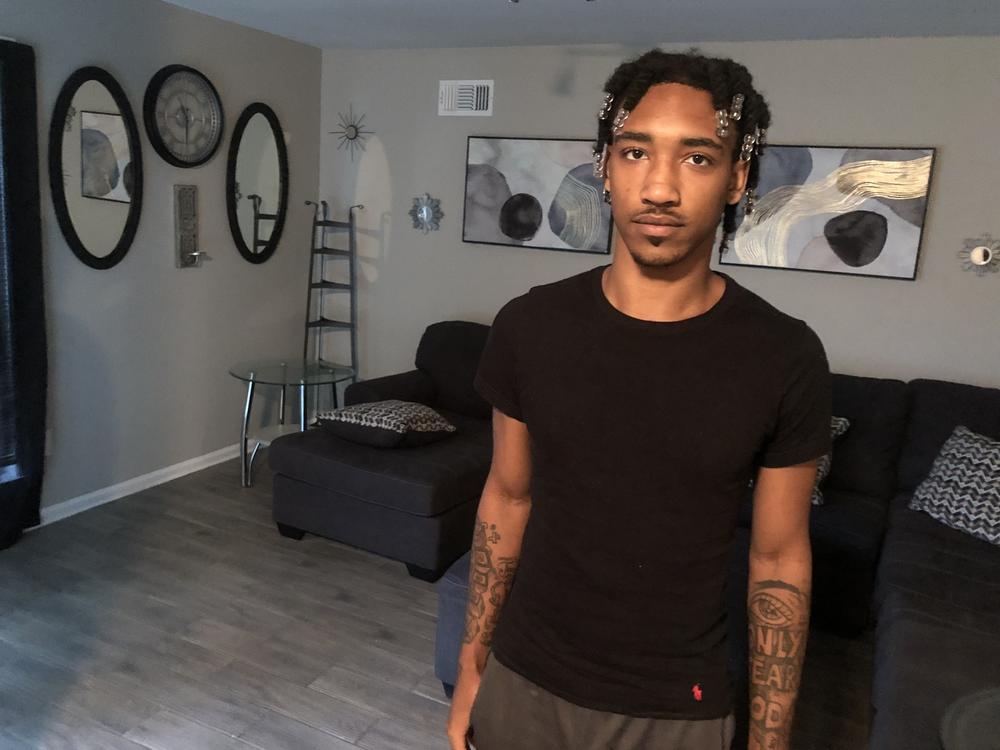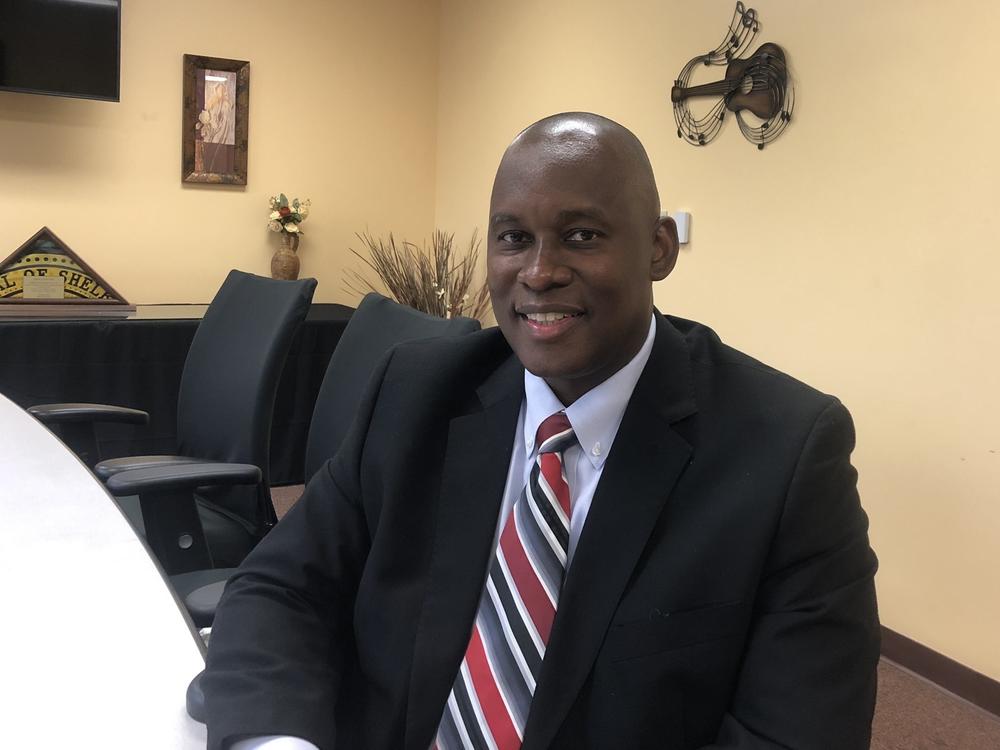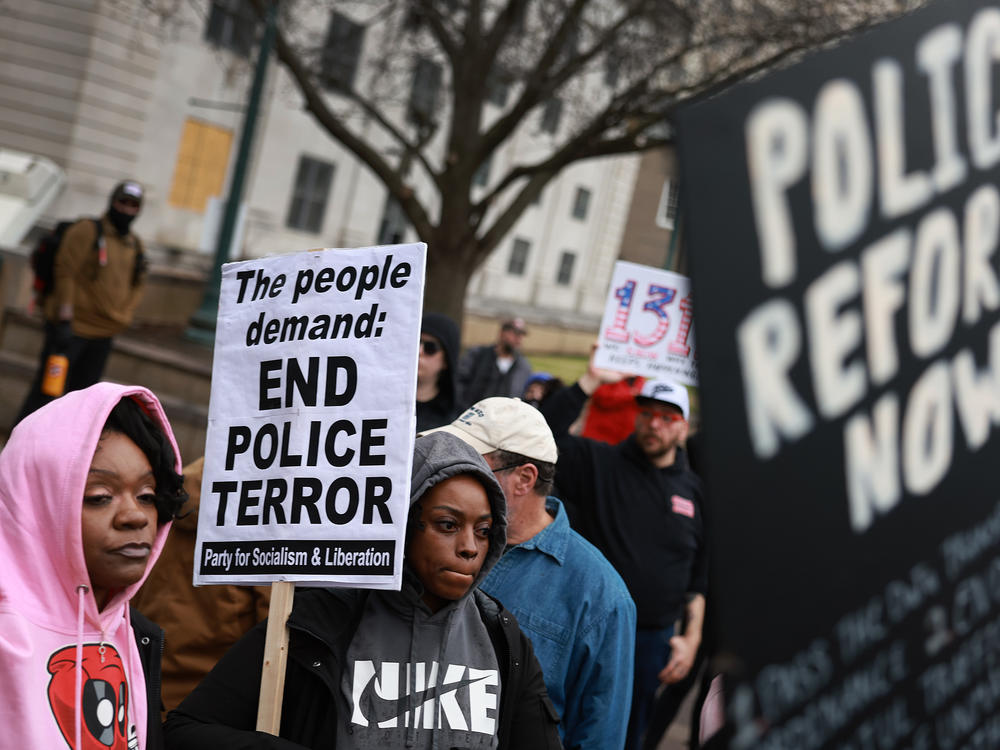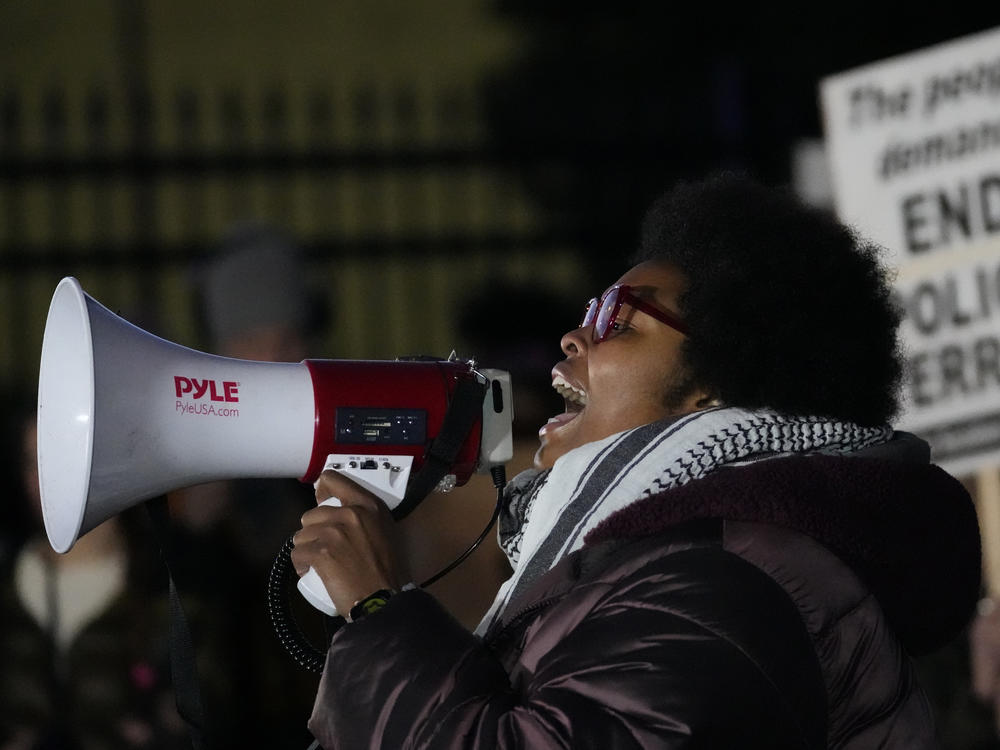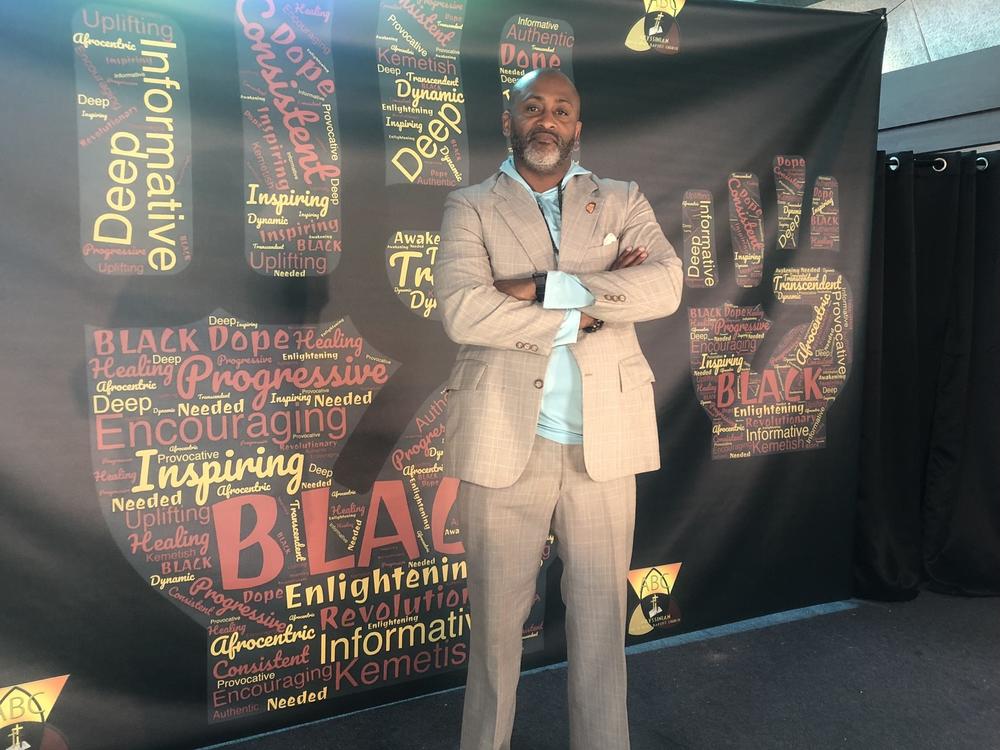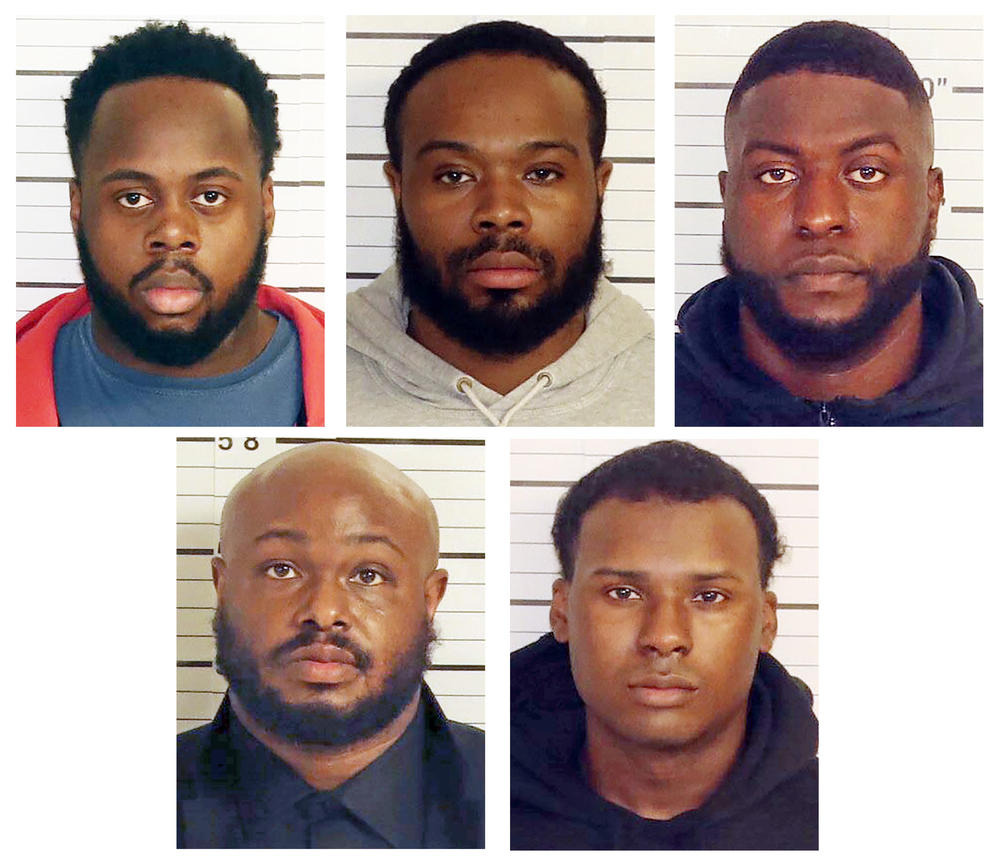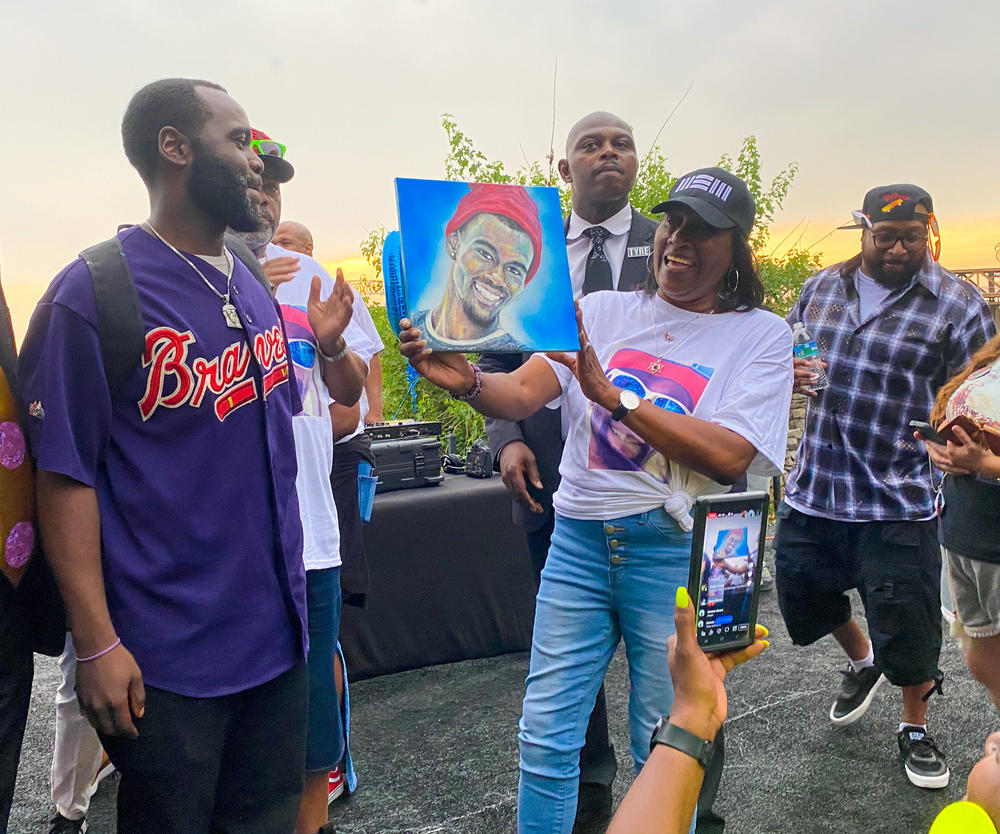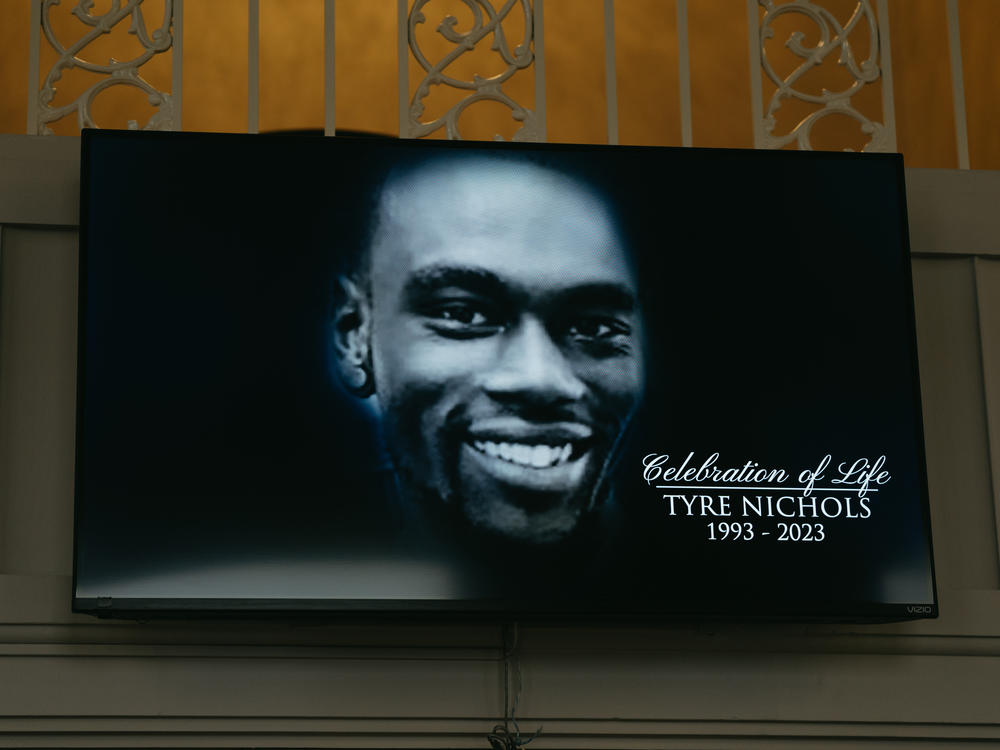Section Branding
Header Content
Memphis Police pressured to change culture after high-profile killings and beatings
Primary Content
MEMPHIS, Tenn. — Monterrious Harris doesn't leave his east Memphis home very often these days, still jittery after a brutal encounter with Memphis police.
It happened just a few days before the January beating death of Black motorist Tyre Nichols. Five former officers, who are also Black, are charged with murder in that case.
Harris, a soft-spoken 23-year-old, had driven to his cousin's apartment, but was intercepted as he tried to back his Chrysler 300 into a parking space.
"They were all wearing black masks," he says. "I remember two of them had big assault rifles."
Someone blinded him with a flashlight and demanded he get out of the car. Harris says he didn't know what was happening.
"They never identified themselves as police, so I was kind of scared. Like I thought I was being robbed."
They were police – the same members of the so-called Scorpion task force who attacked Tyre Nichols.
"The crime that he committed was that he was in a car while Black."
In similar fashion as seen in the disturbing Nichols' bodycam video that was released to the public, Harris says they threw him to the ground, dragged, stomped and beat him until residents came out of their apartments to see what was happening. Harris believes those witnesses saved his life.
He ended up in the hospital, and was arrested on what a judge later dismissed as trumped-up charges. He's still traumatized by the experience.
"I haven't even been working since then," says Harris. "Just seeing police cars and hearing the sirens and stuff, it like triggers me real bad."
Harris says no one should suffer at the hands of the "people that you depend on to help and to protect you."
"Unfortunately, the crime that he committed was that he was in a car while Black," says attorney Robert Spence who represents Harris in a $5 million lawsuit against Memphis. He claims the city sent inexperienced, and largely unsupervised, officers to aggressively police high crime areas.
"I think that was part of their charge — that they were to interdict young Black males in particular, and to rough them up to let them know who ran the streets, that they were in charge in a way, to intimidate citizens," says Spence.
He says it was a political move in order to appear tough on crime in a city plagued with one of the highest violent crime rates in the country.
The Scorpion unit was disbanded after Tyre Nichols was killed, but by then the damage was done according to mayoral candidate Van Turner, former president of the Memphis NAACP. He says it exacerbated mistrust in the police force.
"It was this incident that allowed us as Memphians to draw a distinction," Turner says. "Yes, we want safe communities. We want a return back to community policing. But we don't want innocent people hurt, maimed and killed in the name of effective policing."
He says it will take a lot to restore trust in law enforcement, after the public witnessed officers repeatedly beating, kicking, and using a taser and pepper spray on Nichols as he pled for his life, calling out for his mother.
"The thing that really shocked so many people was that these were five Black officers, essentially, and they had beat to death this Black man," Turner says. "We are in the South and obviously all of the stories and all of what we saw during the civil rights era, you didn't see this."
Bringing new scrutiny to a scrutinized police force
The case has brought new scrutiny to a police force that had been under court orders in the past to address unconstitutional abuses of power. Now there are civil lawsuits and new federal investigations. Activists say a reckoning with an out-of-control police culture is long overdue.
The U.S. Justice Department initially opened a criminal civil rights investigation, and later announced a second civil probe — what is known as a pattern or practice investigation that will focus on several areas — the Memphis Police Department's use of force; its stops, searches and arrests; and whether officers engage in discriminatory policing and dangerously aggressive traffic enforcement.
City councilman JB Smiley welcomes the investigation. He says lawmakers have not gotten the answers they're looking for from police leadership.
Not much transparency, not much candor
"Not much transparency, not much candor as relates to the inner workings of our police department," Smiley says. "And that's problematic and troubling. Hopefully the Justice Department is able to get more information than we can."
The council has passed ordinances designed to prevent officers from making petty traffic stops, and to create an online portal that gives the public access to records of police misconduct.
It also approved a pay raise in an effort to address an ongoing struggle to recruit and retain officers. But the effect of those changes has yet to be seen.
Despite declarations of transparency on their web sites, Memphis Police Director Cerelyn Davis and Mayor Jim Strickland declined to take NPR's questions.
When the DOJ announced its patterns and practices probe, Strickland told local media he was disappointed, and that Memphis is a hard city to be a police officer.
"If there are problems, they identify them and we get them fixed," the mayor said at the time. "But what I really hope is that they find what I think is there is a police department that is abiding by the U.S. Constitution."
The vice chairman of the city council's public safety committee, Frank Colvett, thinks it will take federal intervention to fix the department.
"When your police chief tells you that the culture of MPD trumps policy, you got a big problem," Colvett says.
"They do not represent what Memphis is all about."
Colvett doesn't expect the DOJ to find widespread corruption, but instead perhaps pockets of the department that have run amok.
"Nineteen-hundred and fifty-one police officers showed up yesterday and performed honorably. They're going to show up today and perform honorably. They're going to show up tomorrow and perform honorably," says Colvett. "The people that murdered Tyre Nichols - they do not represent the Memphis Police Department. They do not represent what Memphis is all about."
But some activists here point to a long history of investigations and legal settlements they say have failed to stop abuses of power within the police force.
Amber Sherman, an organizer with Black Lives Matter and Decarcerate Memphis, doesn't think this latest federal investigation will change things either.
"We criminalize poor Black people"
"They're going to find what most people here in Memphis have already known for years – that the police are targeting these specific poorer and lower-income zip codes, majority Black areas . . . because we criminalize poor Black people," Sherman says.
She's frustrated that elected officials haven't done more, including firing the police chief.
"They aren't being held accountable and they aren't holding the police accountable," says Sherman. "Folks are still being stopped. They're still being harmed. They're still being beat up."
The latest incident now under state investigation was a 19-year-old Black man who died in police custody last month after being detained for allegedly rummaging through mailboxes.
The Rev. Earle Fisher, senior pastor of Abyssinian Baptist Church in the predominantly Black Whitehaven neighborhood, says what's going on in Memphis should be viewed in context of the push for criminal justice reform across the country.
"If you've been Black in America for 15 minutes, you know something about the trauma related to policing," Fisher says.
Fisher is part of a group of clergy who petitioned the Justice Department to conduct a pattern or practice investigation. He says the probe has the potential to validate and verify what activists have long complained about.
"Now, at least when these reports come out, they won't say that that's just that radical preacher in Whitehaven," he says. "No, the Department of Justice said this."
Fisher and others are calling for more investment to address poverty in Memphis, and less contact and conflict between residents and police.
"Show some humanness," says local food truck operator Keedran Franklin, an organizer for the group Black Man Build.
He would like to see the police driven more by services than by analyzing crime data.
"Because if I look at data, I can I just look at data. But if I look at people, I can learn their story and I can be empathetic. I understand that not every scenario is the same."
Franklin says that not every Black man should be treated like a criminal just because they live in a community where Black men may have committed crimes.
"I think Tyree's case just was the straw that broke the camel's back," says RowVaughn Wells, Tyre Nichols mother.
"My son's death opened up the doors. I hate that it all had to come down to this. However, Memphis brought this on themselves."
She's heartened to know that federal investigators are in town.
"For them to even come in knowing my son's name? That's big for me."
Wells has filed a $550 million wrongful death lawsuit against the city, alleging Nichols died "at the hands of a modern-day lynch mob." She hopes it sends a clear message.
"That you can't keep doing this. Every time you do this, that it's going to hurt your pockets," says Wells. "Making it where these police officers are really held accountable that decided to beat my son to death."
"We're not taking this anymore. You fix your police department or you will be sued each and every time."
Wells says the nation's eyes are on Memphis now, and just like the George Floyd case in Minneapolis, she hopes her family's tragic loss can bring change.
Copyright 2023 NPR. To see more, visit https://www.npr.org.
